Institution: Kiel University
W
U
- University of Delaware
- United Nations
- United Cities and Local Governments
- University of Pennsylvania
- Università di Macerata
- University of Oxford
- United Nations Development Programme
- UN Statistics Division
- UNESCO Information for All Programme
- United Nations Environment Programme
- University of Queensland
- Universidade Estadual do Rio de Janeiro (Federal Rural University of Rio de Janeiro)
- University of the Philippines
- University of California - Irvine
- University of Victoria
- UN-Habitat
- University of Cape Town
- University of Exeter
- United Nations Economic Commission for Africa
- UNICEF
- Università degli Studi di Siena
- Università degli Studi di Napoli Federico II
- Université de Sousse
- United Technologies Research Center
- Università degli Studi di Tuscia
- University of Jordan
- University of California - San Francisco
- UNESCO World Water Assessment Programme (WWAP)
- University of Wollongong
- UNU-WIDER
- Unilever
- University of Gothenburg
- UNESCO
- United Nations Economic Commission for Europe
- UNESCO Global Network of Facilitators
- University of South Africa
- University of Antwerp
- University of Music Franz Liszt Weimar
- UNU-CRIS
I
- International Union for the Conservation of Nature
- International Monetary Fund
- International Institute for Applied Systems Analysis
- Institute for Sustainable Development and International Relations
- Indian Institute for Human Settlements
- International Telecommunication Union
- International Ocean Institute
- India Federation of Self Employed Women's Association
- International Civil Society Action Network
- International Institute for Environmental Development
- ICLEI - Local Governments for Sustainability
- International Labour Organization
- IHE Delft
- International Fertilizer Association
- Islamic Development Bank Institute (IsDBI)
- Istanbul International Center for Private Sector in Development (IICPSD)
- International Labour Organization (ILO)
- International Social Security Association
S
A
- Ain Shams University
- American University
- Athens University of Economics and Business
- African Center for Cities
- Association of Caribbean Energy Specialists
- All India Institutes of Medical Sciences
- Australian Resilience Centre
- Alliance for Global Water Adaptation
- Academy of Korean Studies
- Ahmedabad University
M
H
E
F
- Federal Government of Ghana
- Fundação Getulio Vargas
- Facultad Latinoamericana de Ciencias Sociales
- Federal Government of Chile
- Federal Government of the United States of America
- Foundation for the Global Compact
- FAS - Fundação Amazonas Sustentável (Amazonas Sustainable Foundation)
- Former President of Colombia
- Former Prime Minister of Norway
- Former UN Secretary-General
- French High Council for the Financing of Social Protection
C
N
- New School
- Natural Resource Governance Institute
- National Disaster Management Authority (India)
- National Research University Higher School of Economics
- National Wildlife Federation
- New York University
- Northumbria University
- National Autonomous University of Mexico
- National Institute of Archaeology and Heritage Sciences of Morocco
G
K
D
P
B
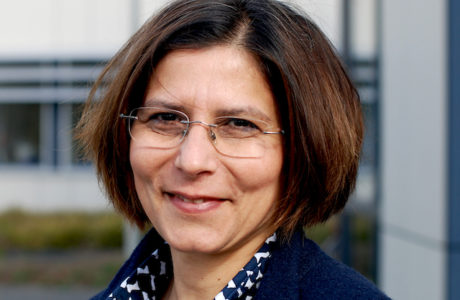
Avan Antia
A marine biologist-cum-biogeochemist, Dr. Avan Antia researched the biological pump and its capacity to sequester CO2. Moving from research into higher education, Dr. Antia is currently Head of the Integrated School of Ocean Sciences (ISOS), the graduate school for marine sciences in Kiel, Germany. She was heavily involved in the conceptualisation of postgraduate education in marine sciences, which reflects the multidisciplinary network in Kiel spanning five faculties, and has been central to the realisation of this Ocean MOOC.
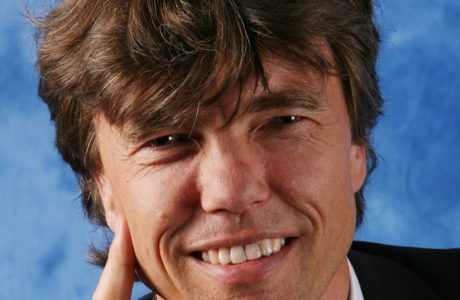
Martin Visbeck
Professor Martin Visbeck is Head of the Research Unit ‘Physical Oceanography at GEOMAR Helmholtz Centre for Ocean Research Kiel, Germany. Research interests of Martin Visbeck and his group revolve around the ocean role in the climate system with an emphasis on understanding climate change and climate variability. As the speaker of the German Excellence Initiative ‘The Future Ocean’ in Kiel, he is involved in integrated marine sciences bringing together different disciplines to work on marine issues. More recently, he has been heavily engaged in the sustainable development of the ocean. Prof. Visbeck is a member of the Leadership Council of the Sustainable Development Solutions Network (SDSN) as well as a member of the Joint Scientific Committee of the World Climate Research Programme.
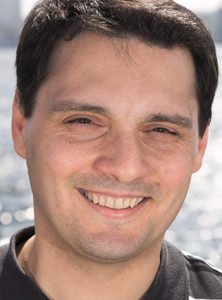
Athanasios Vafeidis
Athanasios Vafeidis is the Head of the Working Group “Coastal Risks and Sea-Level Rise Research at Kiel University. Read more about his work here: http://www.crslr.uni-kiel.de/en/people/gruppenleiter/prof.-athanasios-vafeidis.html.
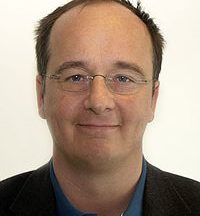
Klaus Wallmann
Klaus Wallmann is a Professor of Marine Geosystems at Kiel University. Read more about his work here: http://www.geomar.de/en/mitarbeiter/fb2/mg/kwallmann/.
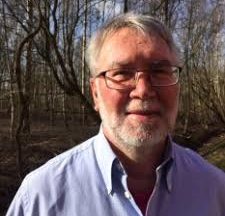
Horst Sterr
Horst Sterr is Emeritus Professor of Coastal Geography at Kiel University, Germany. A primary focus of his research has been the impacts of climate change on coastal regions, covering aspects from coastal hazards to the assessment of coastal societies’ vulnerability. In the 1990s Prof. Sterr was the scientific representative for Germany in the Intergovernmental Panel on Climate Change (IPCC) working group on Coastal Zone Management. He was engaged for 20 years in developing coastal zone management strategies and projects in Germany on a national and regional level. He has also been involved in a risk management advisory board for the German Government for over 10 years.
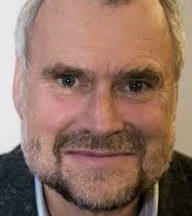
Karl Stattegger
Karl Statteger is Head of the Research Unit “Sedimentology, Coastal- and Continental Shelf Research” at Kiel University.
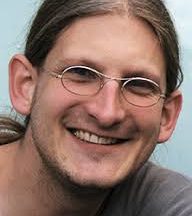
Jörn Schmidt
A multidisciplinary specialist, Dr. Jörn Schmidt is Postdoctoral Fellow currently working in the realm of social-ecological systems and concepts of sustainability in the ocean in the Environmental, Resource and Ecological Economics at Kiel University, Germany. His research incorporates questions about transitioning from single to multi-species fisheries management, science communication with stakeholders, the use of games for education and communication (e.g., ‘ecoOcean’) and the application of coupled models in developing practical management advice. In 2012 he became the German representative in the Science Committee (SCICOM) and is a member of the Publication Committee (PUBCOM) of the International Council for the Exploration of the Sea (ICES). He is co-chair of the ICES Benchmark Steering Group (BSG) and the ICES Strategic Initiative on the Human Dimension in Integrated Ecosystem Assessments (SIHD).
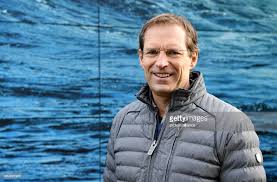
Ulf Riebesell
Professor Ulf Riebesell is a biological Oceanographer at GEOMAR Helmholtz Centre for Ocean Research Kiel in Germany. The focus of his research is on the effects of environmental change (ocean warming, acidification and deoxygenation) on marine ecosystems: from plankton physiology, ecology and evolution to food web interactions and biogeochemical cycling in the ocean. Since 2009 Prof. Riebesell has been the coordinator of the German national research programme Biological Impacts of Ocean Acidification (BIOACID) funded by the German Ministry for Education and Research. He contributed to the Millenium Ecosystem Assessment Repor and the German Advisory Council on Global Change (WBGU) special report “The Future Ocean“ Warming Up, Rising High, Turning Sour. In 2011 he received the Vernadsky Award of the European Geosciences Union and in 2012 the Leibniz Award of the German Research Foundation. In 2016 he was awarded an Advanced Grant of the European Research Council.

Thorsten Reusch
Professor Thorsten Reusch is Head of Marine Ecology and the research unit Evolutionary Ecology of Marine Fish™ at GEOMAR Helmholtz Centre for Ocean Research Kiel, Germany. His main interests are how species and communities may evolutionarily adapt in the face of global change, and how marine organisms generally adapt to extreme environments of lifestyles. For the conservation of marine ecosystem function and to keep the adaptation potential of marine ecosystems, genetic diversity may be as important as species diversity. Thorsten Reusch has an extensive publication record in scientific journals including Nature and Science covering topics from population genetics, invasive species and the evolutionary changes in marine organisms in a changing environment.